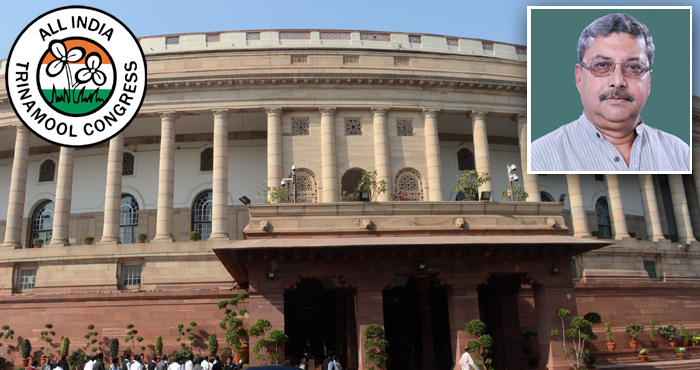January 3, 2018
Kalyan Banerjee speaks on The Constitution (One Hundred and Twenty-third Amendment) Bill, 2017

FULL TRANSCRIPT
Madam, at the very outset, I want to make it clear that before a discussion was taken up on this Bill, the BJP came to us and said that this will not take much time, one or two minutes at best, and we will finish it. But now I find that they have changed their stand and their speaker has spoken for 30 minutes.
Nobody is opposing the Bill. Earlier I spoke about this Bill and made an objection; an amendment to that effect has been brought. The government should not claim the credit for these facilities for the OBCs. There was almost a revolution in the country, Mandal Commission was constituted, matter was referred under Article 3 to the Supreme Court of India. The Supreme Court of India had directed a passing order. Neither Modi Ji or any ‘Ji’ can claim credit for this.
What is the constitutional amendment that was brought in the month of April, 2017? Constitutional status for the OBC commission – nothing more than that. And we have said that the constitutional status should be given; we have agreed to that. On that date itself we have participated in this debate and that time I objected as to why this report would be sent to the Governors. It should be sent to the State Government. Good sense has prevailed on the government now that they are coming with that. That time they did not like it.
So many tall claims are being made… (interruptions) the Sachar Committee had pointed out that there were OBCs in the Muslim community and they have to be brought (interruptions) It has been pointed out by the Sachar committee first. You must tell the truth, nation should know.
In 2011 when our party came to power, the Hon Chief Minister Mamata Banerjee started the process of identification of the OBCs among the Muslims. And it had been done in 2011, long before 2014. Long before your Prime Minister had seen the dream, the dream was fulfilled in West Bengal. Therefore, don’t make tall claims. If you want to give an election speech, go there and give it (not here in Parliament). You have faced Gujarat. What are you doing for the welfare of OBCs? Why are OBCs fighting against you in Gujarat? They are voting against you in Gujarat? The result has shown how you have gone down there because you have not accommodated the OBCs in Gujarat. This is the reality.
Madam, now, which I want to point out, that when the commission will make an investigation, under 338B Clause 5 (to investigate and monitor the provisions are there), you have not given any scope to speak, to press the case of state government itself. Because a government represents its own state, they understand who will be categorised as OBCs. That will be the state government’s view. There is no scope at all in the amendment itself also, to call for the opinion of the state government for consideration by the national commission.
Now under Clause 7, if the report is placed before the state government, state government will proceed into legislature and acceptance or non- acceptance will be given. What will be the effect if the state government does not agree with that? Where is the scope for the state government to raise their objection? You have not made such a provision in the amendment itself.
But contra-provision is there. There is no scope under this constitutional amendment, at any stage, that the state governments will press their views, before the commission. But you have made a provision under Clause 9 – the Union shall consult the commission on all major policy matters affecting socially and educationally backward classes. When you are thinking about the OBCs, you are not taking the views of the state government but you are telling that the state government will have to take all decisions in consultation with the national commission. That is a contradiction.
You are talking about cooperative federalism? Is it an illustration of cooperative federalism? Rather it hits the foundation of cooperative federalism itself.
(interruptions)
HOUSE ADJOURNED
